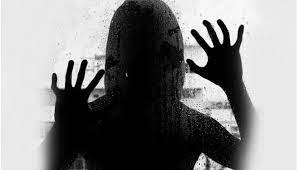How women wrestlers’ movement has become wider symbol for justice, dignity, safety

Vinesh Phogat is a prominent woman wrestler who has been the proud winner of gold medals for India in Asian and Commonwealth Games. In more recent times, however she has spent most of her time struggling to get justice for seven women wrestlers, including a minor, who have complained of sexual harassment by a very senior official of the Wrestling Federation of India.
By Bharat Dogra
In a review of her experiences in the course of this struggle, very recently she wrote in The Indian Express (May 24, 2023) that they are not satisfied with the official response to their struggle so far and that their struggle will continue till they get justice. An oversight committee was formed by the Sports Ministry to probe the allegations but, Phogat has written, “we know now that it was an eyewash…There is no justice in sight.”
In addition she has stated, “Like many other girls I had to suffer silently all these years because of this man (the main accused in this case) and I had no option.” Regarding this struggle, in which she has been joined by other medal-winning wrestlers, she has stated, “What is the use of medals around your neck if you can’t fight for justice.” She has stated that we are fighting for justice so that other women sportspersons do not have to endure such harassment and can compete in a safe environment.
Vineet Phogat, Sakshi Malik and other women wrestlers who are leading this struggle represent a group of high achieving women from rural and traditional sections of society who have won very high appreciation and acclaim among traditional as well as modern sections of society, helping to open the doors of new, non-traditional avenues for women, in sports and elsewhere. They have also been joined by some equally high achieving male colleagues like Bajrang Punia. If even they cannot get justice after such a prolonged struggle, and instead of giving their best to prepare for their upcoming international events have to spend their time on the footpath in protests, then this will send a very wrong message regarding the progress paths open for women.
Women and girls in India have responded very well to whatever limited openings that became more available for them in the more tradition-bound sections of society. Girl students have been consistently performing better than boys in schools in many areas. Even at a higher level there is the welcome news that the highest share of women candidates has just been recorded in the recent selection by the UPSC for civil services. All the top four ranks here have been claimed by women.
What is more, even from the more tradition-bound villages, there have been many remarkable success stories of women, including those who have been elected as pradhans or head-persons of their villages under India’s system of rural decentralization called panchayati raj.
It is in this wider context that the struggle of women wrestlers should be seen. It is significant that they have been receiving widespread support from not just the farmers’ movement but even from those village-level organizations generally regarded as social conservatives in matters concerning gender equality and rights of women. Hence this struggle has acquired a larger dimension in the context of the aspirations of women and girls from rural and traditional areas. The fact that even the most successful among them are being denied justice for such a long time (this struggle started in January 2023) and that there is a possibility of the leaders of the struggle being victimized has hurt the feelings of all those in similar aspirational positions. In contrast, the more elitist and richest sportspersons, such as cricketers, have at best provided only very limited support to this struggle.
This struggle is no longer the struggle of just a few wrestlers but has become an identity mark for all those women and girls from traditional sections of society who want environs of safety, dignity and justice as they enter new avenues to improve their socio-economic conditions. They are asking—if even a struggle led by the superstars among us—international gold medal winners—does not get justice, how can our safety and dignity be assured? Hence justice for this struggle has become increasingly important for the justice, safety and dignity of a large number of women and girls.
Courtesy : Counterview
Note: This news piece was originally published in counterview.in and used purely for non-profit/non-commercial purposes exclusively for Human Rights







